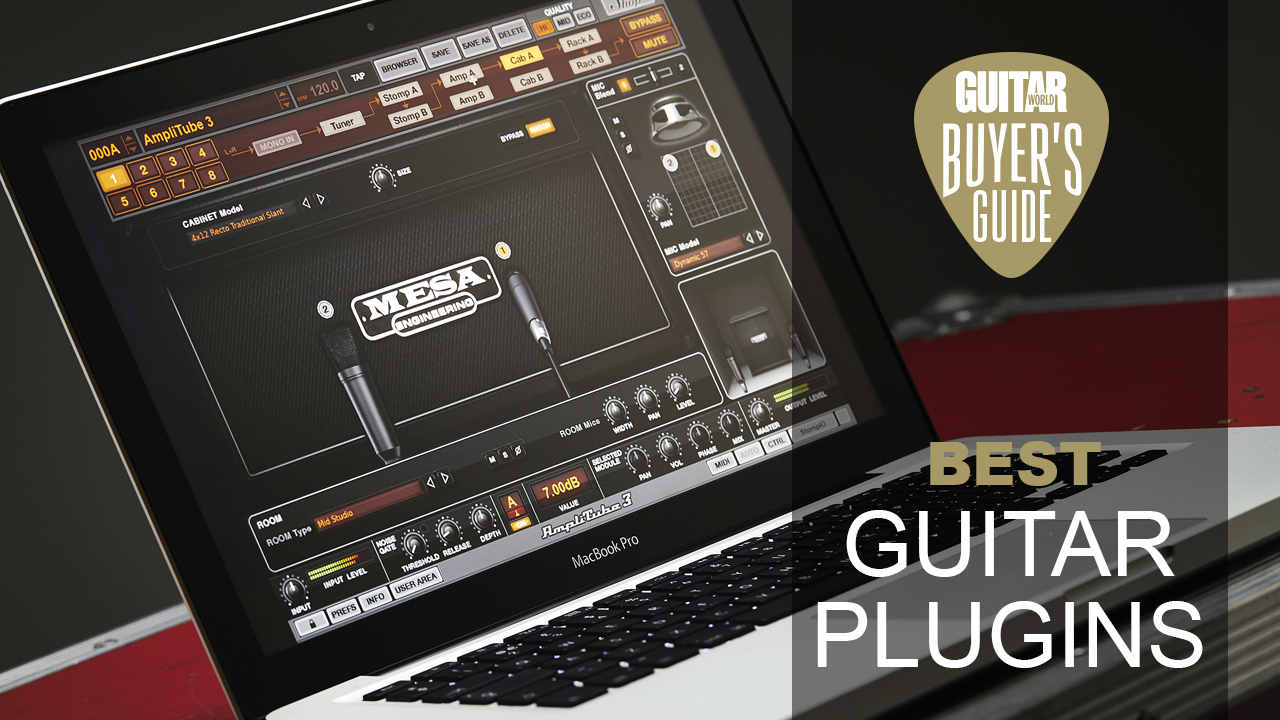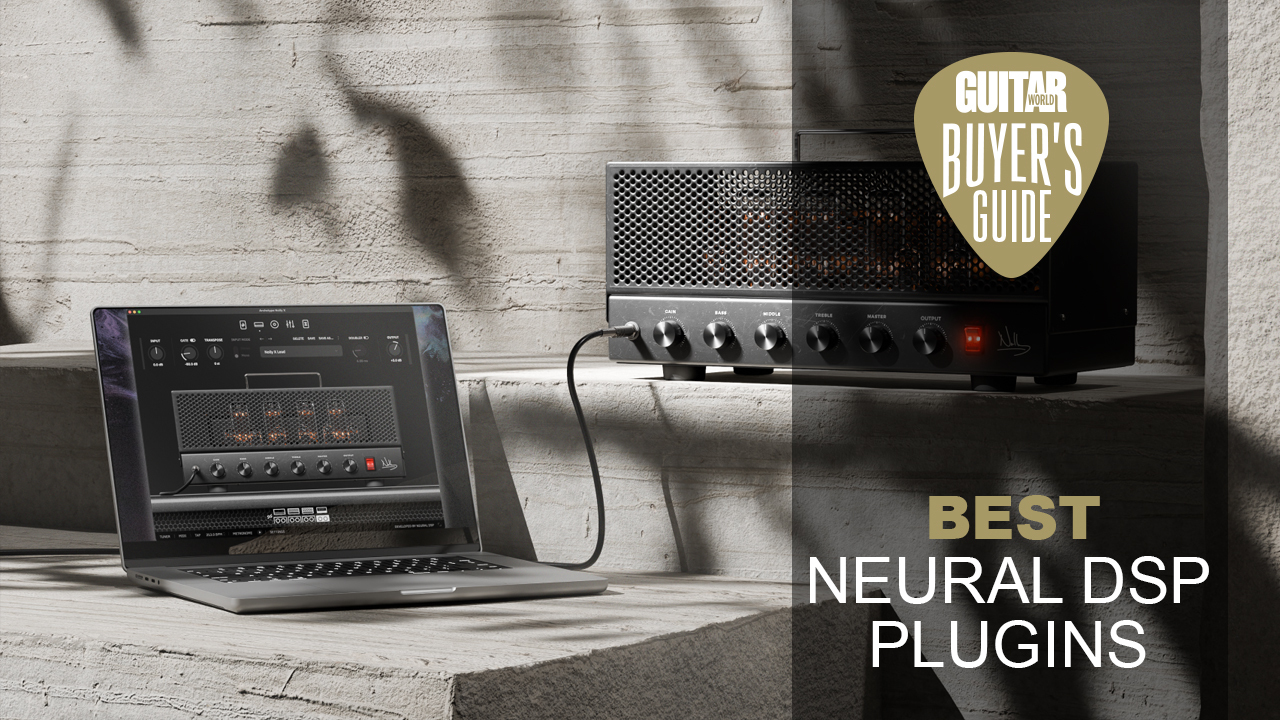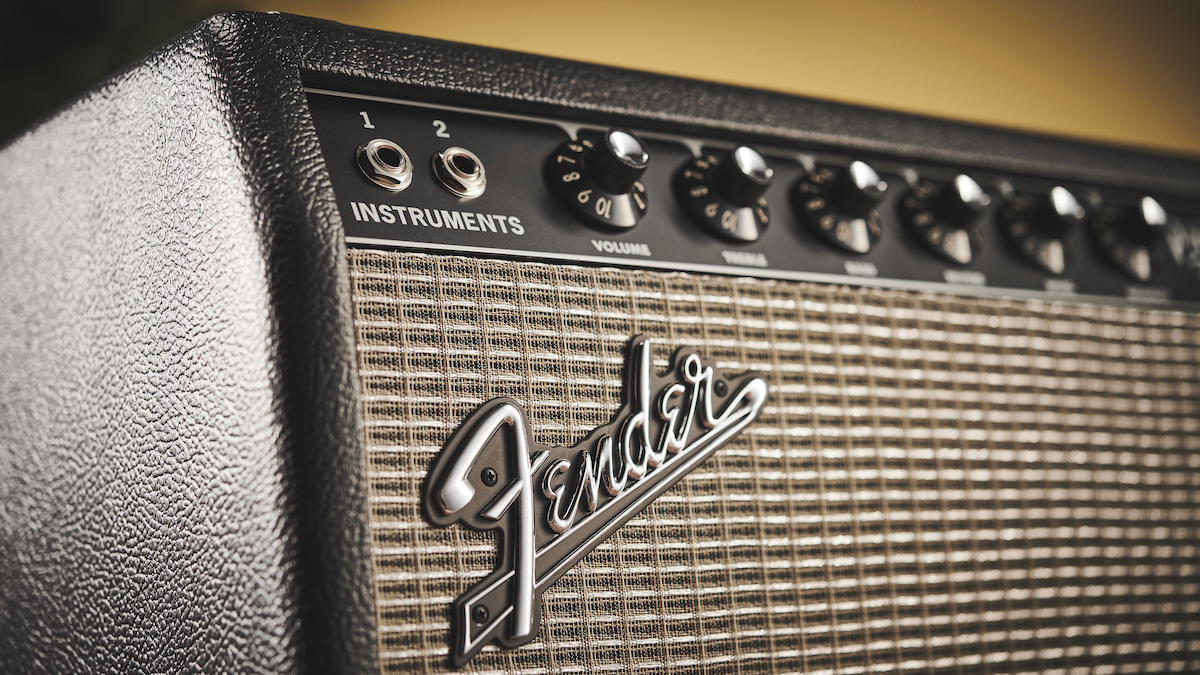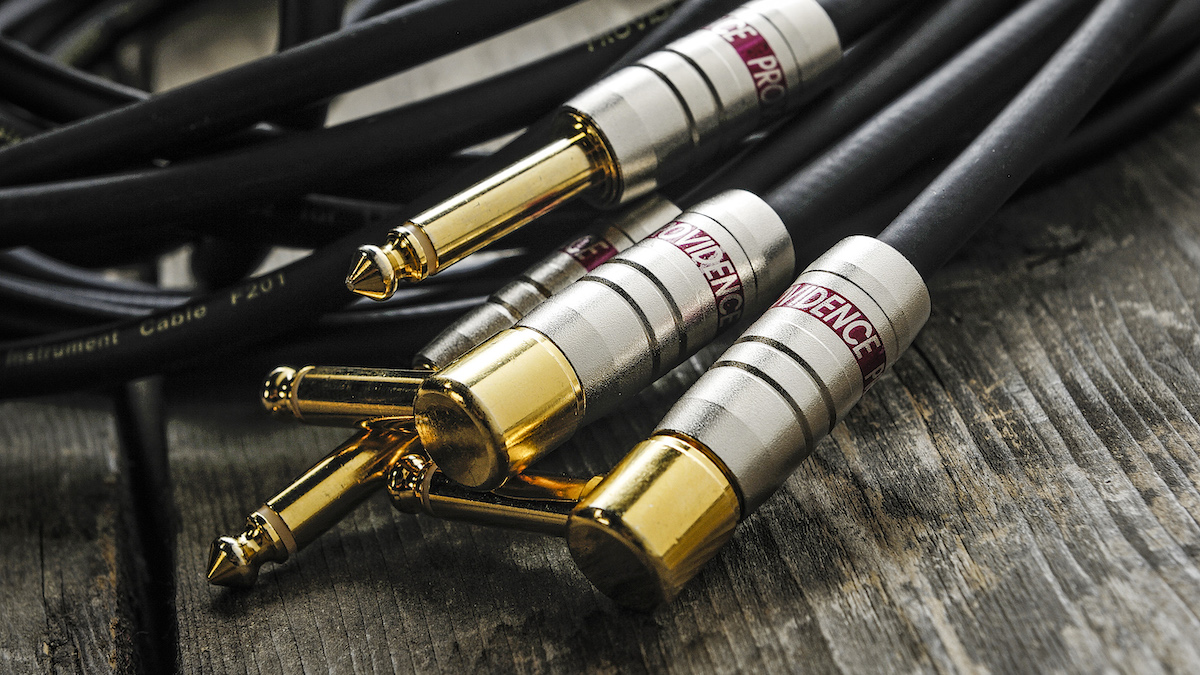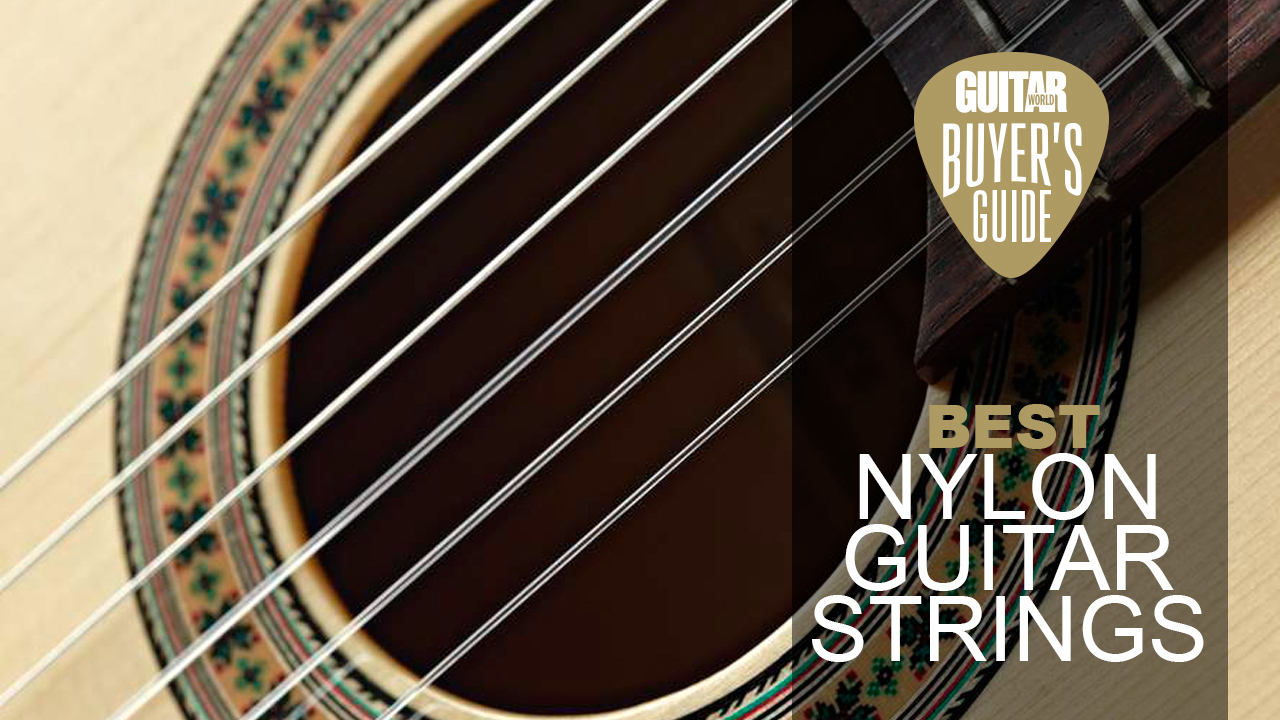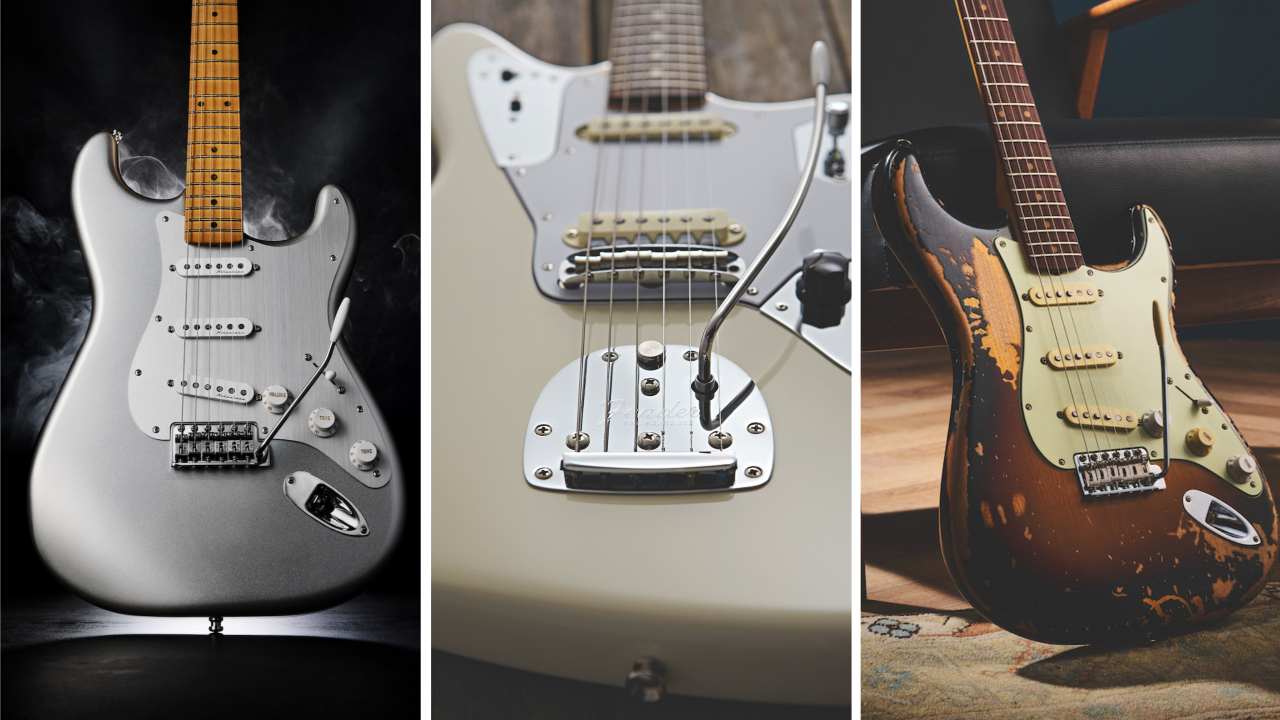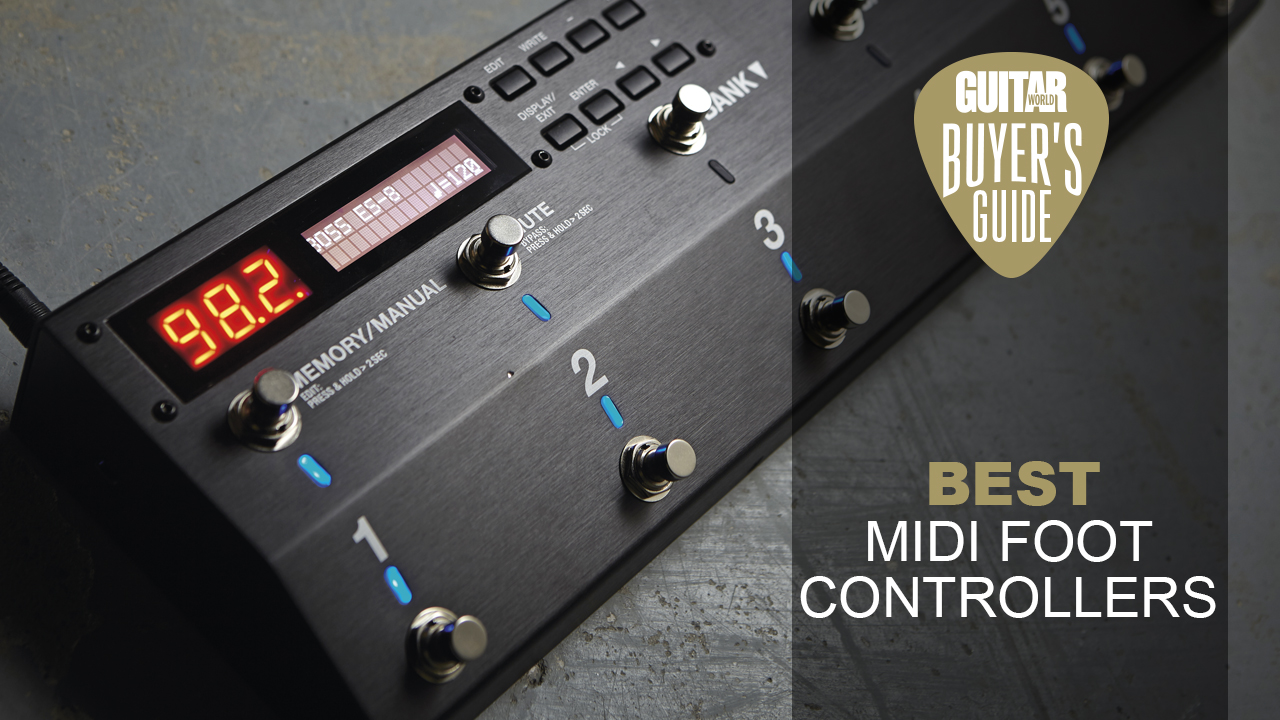Best acoustic guitar strings 2025: our best rated strings for your acoustic
We pick the best guitar strings for acoustic guitar from Ernie Ball, D'Addario, Martin, and more
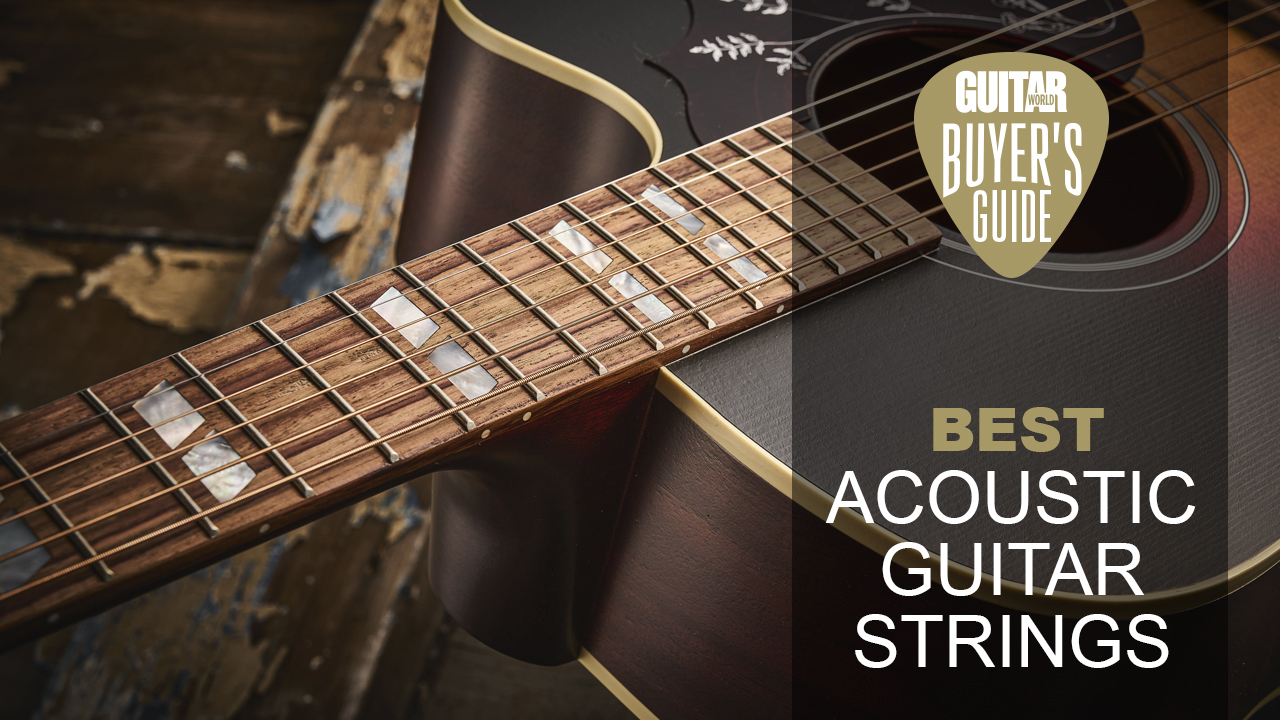
The more you play your acoustic guitar, the more sweat, dirt, and grime gets into your strings, and the worse you sound. Changing strings is part and parcel of being a guitarist, but if you've never considered trying out a fresh gauge or different brand, our guide to the best acoustic guitar strings available right now will get you pointed in the right direction.
Picking strings is a very personal choice, but thankfully it's not a particularly expensive one. It's for this reason we'd advise you to try out a variety rather than just settling for the set you know best. A different set of strings can completely change the way your acoustic plays, and may open up new playstyles you never thought were possible with those old strings.
Making the decision can be a tough one, especially when you consider the pure amount of string sets that are available nowadays. So to make things a little easier for you we've picked out our favorite sets and sorted them by use case. We've also included an in-depth FAQs section which answers loads of common questions you might have about acoustic guitar strings.
Product guide
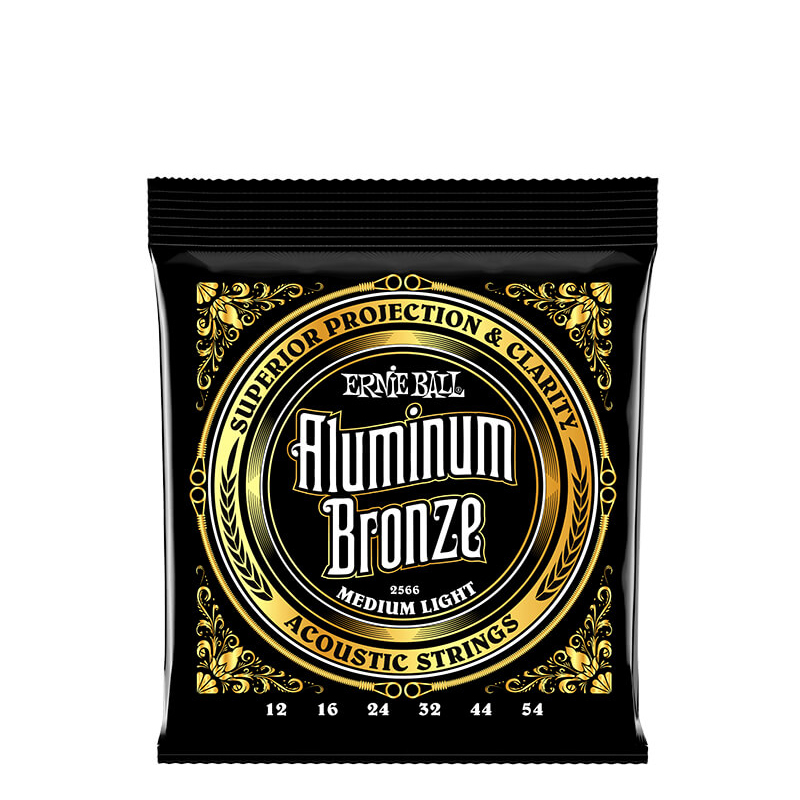
Material: Steel core, aluminum bronze winding
Coated: No
+ Premium protection
+ For all players
- Can be too bright
Strings take quite a beating over the course of their lifespans. Whether it’s changes in temperature and humidity or simply being constantly tickled by your sweaty fingers, the life of a string is a tough one. So, if you are looking to prolong the life of your strings, the Ernie Ball Aluminum Bronze set is a solid choice - especially if you aren't a fan of traditionally coated strings.
Now, while we personally like the sound of a brighter acoustic guitar, we will admit that these Ernie Ball strings are particularly bright. So, you should bear that in mind if you own an acoustic guitar that's already voiced with brighter-sounding tonewoods.
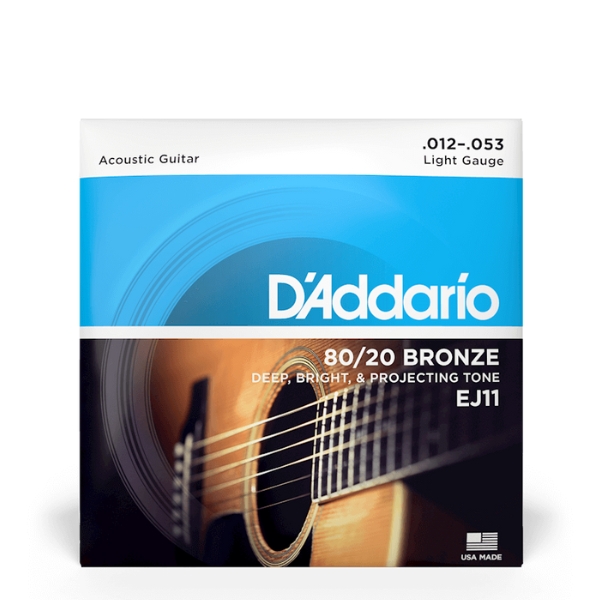
Material: 80/20 Bronze
Coated: No
+ Excellent value
+ Great for beginners
- Not as durable as others
Strings are relatively inexpensive when it comes to it, but if you need a cheaper set that doesn't compromise on quality, we'd go for the D'Addario EJ11 80/20 Bronze. Available for around the $5-6 mark at pretty much every retailer, these are great value strings for those on a budget.
We've gone for the light gauge as our top pick but there's a total of six different gauges available from this range including an extra light set as well as a hybrid offering with a light top, medium bottom. They're bright and bold sounding, but won't last as long as a coated set.
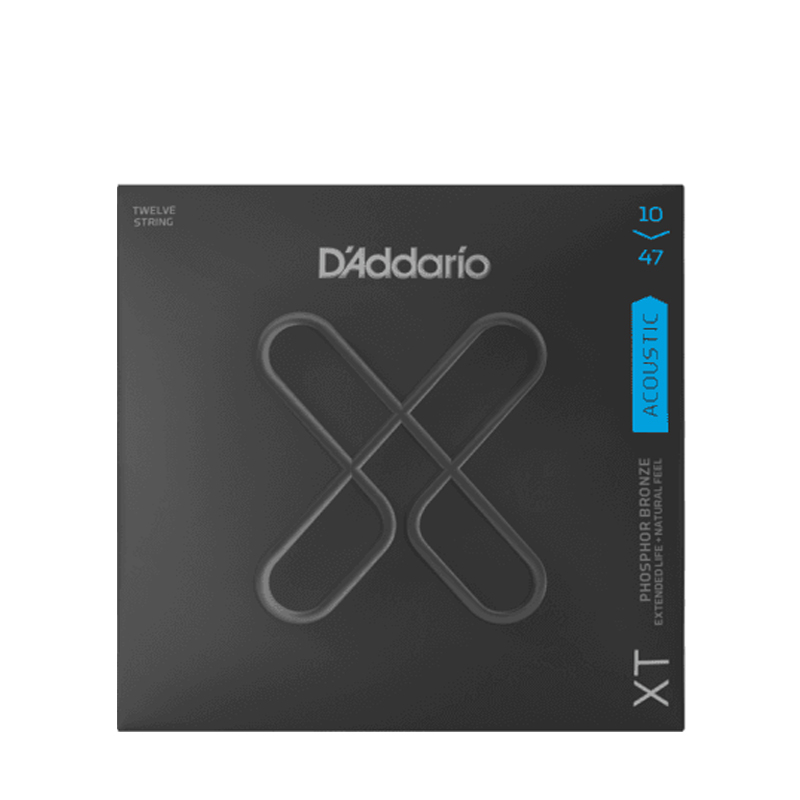
Material: Phosphor bronze, 80/20 bronze
Coated: Yes
+ Effective coating
+ Great tuning stability
- Coating isn't for everyone
The new XT line-up may be D'Addario's most advanced strings yet. These meticulously designed strings combine all of D'Addario's bright ideas - including high-carbon NY Steel, fusion twist technology and, of course, those irresistible colored ball ends - and adds a new string coating that not only triples the lifespan of the string but to us, they feel nearly identical to uncoated strings.
Look, this advanced technology doesn't come cheap. These fancy strings are significantly more expensive than a standard set, and to some ears, there may not be that much of a difference in tone.
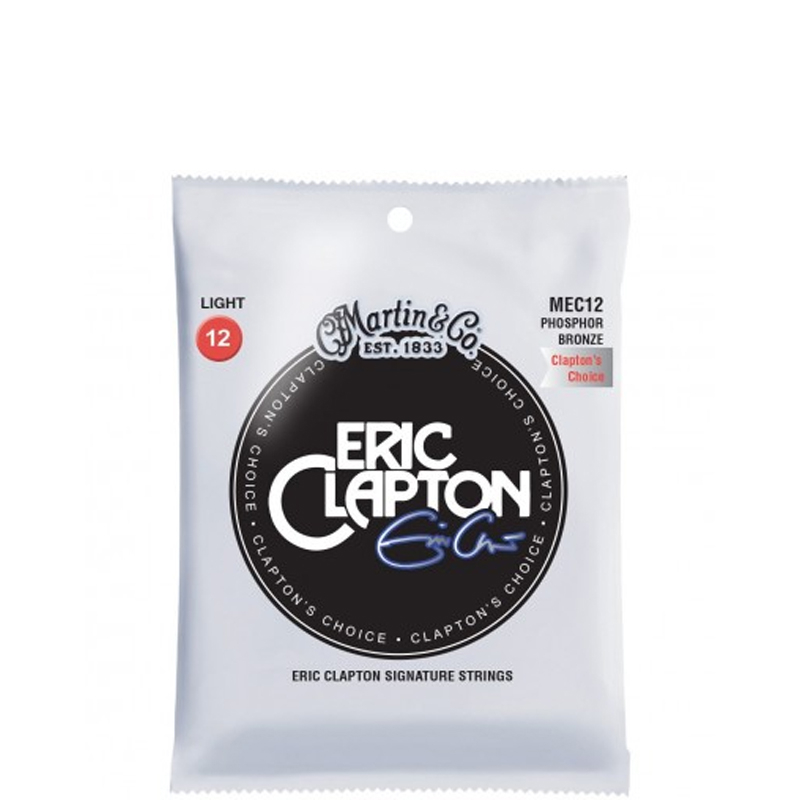
Material: Phosphor bronze, steel core
Coated: No
+ Consistent
+ Durable
- Too mellow
If you're a fingerpicker then you'll want a set of strings that's a little less bright. These Martin 'Clapton's Choice' Strings are much less zingy than the other sets here, making them great for those who are down to pluck.
The overall warm tone of these strings makes them perfect for those gentle fingerstyle pieces, helping deal with the 'clank' you sometimes get when fingerpicking with regular acoustic strings. Of course, if you're looking for a modern, bright attack from your acoustic, you will want to look elsewhere.
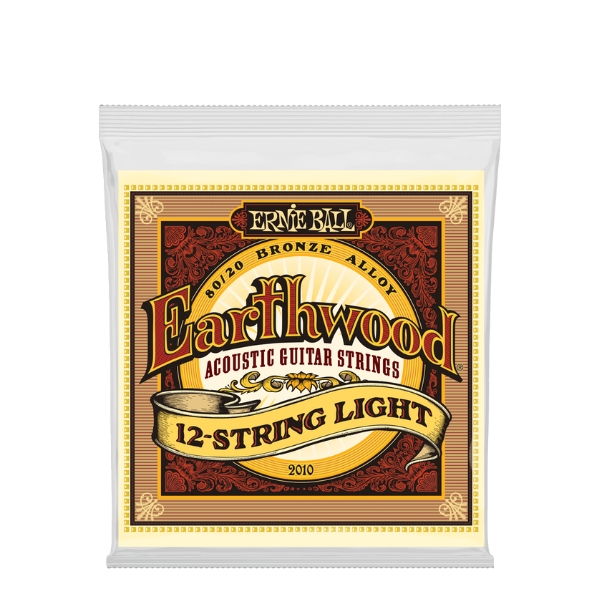
Material: 80/20 bronze
Coated: No
+ Great value
+ Bright sound
- Coated would last longer
Restringing a 12-string guitar is not for the faint of heart, but we've found the Ernie Ball Earthwood 12-string set to last particularly long for an uncoated set. They're also considerably cheaper than a coated set of strings, making them perfect for those who want a good value set for their 12-string.
As with most Ernie Ball acoustic string sets these are quite bright sounding, which can definitely add to the sparkly sound of a 12-string. They're nicely balanced across the frequency spectrum, and come in a heavier gauge set if you like more resistance or want to downtune.
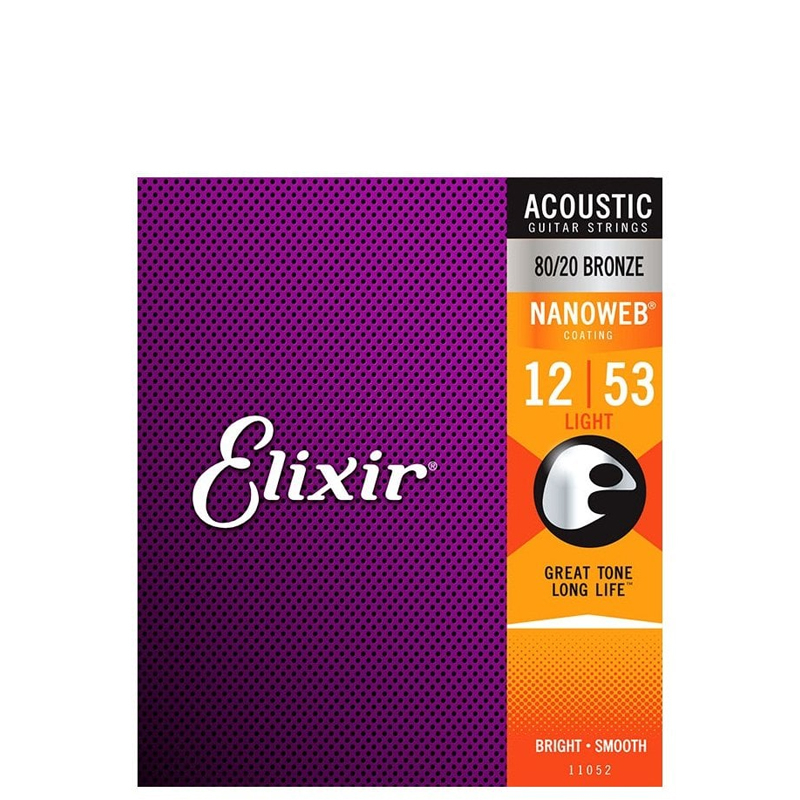
Material: Steel core, 80/20 bronze winding
Coated: Yes
+ Coated without affecting tone
+ Highly playable
- Too bright for some
Elixir knows a thing or two about coating strings and has developed a patented coating which the company claims offers the same protection as regular polymer coatings but without the tonal drawbacks - making them arguably the most well-known maker of coated strings.
In our experience, these strings last longer than uncoated strings, yet at no point will make you feel like you're compromising tone in order to achieve this durability. That said, the coating can break down if you're a heavy hitter. So, bear that in mind if you like to smack those cowboy chords.
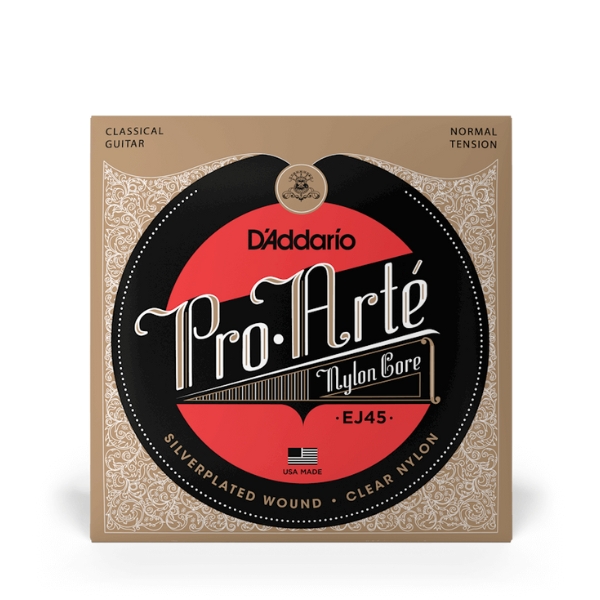
Material: Nylon, silver-plated copper winding
Coated: No
+ USA made
+ Articulate tone
- Some may prefer ball ends
Although nylon strings deteriorate at a slower pace compared to steel strings due to their resistance to oxidation, it’s still beneficial to keep them fresh. Unsurprisingly, D’Addario produces some of the best nylon strings in the business, particularly the Pro Arté series.
The Pro Arté series offers two tensions—normal and hard—with the latter being preferable for a snappier, louder tone that has plenty of high-end zing. The normal tension has a mellow tone that works very well for softer classical pieces. However, if you find the process of tying nylon strings to the bridge fiddly and prefer ball-end strings, they might not be your first choice.
String gauges
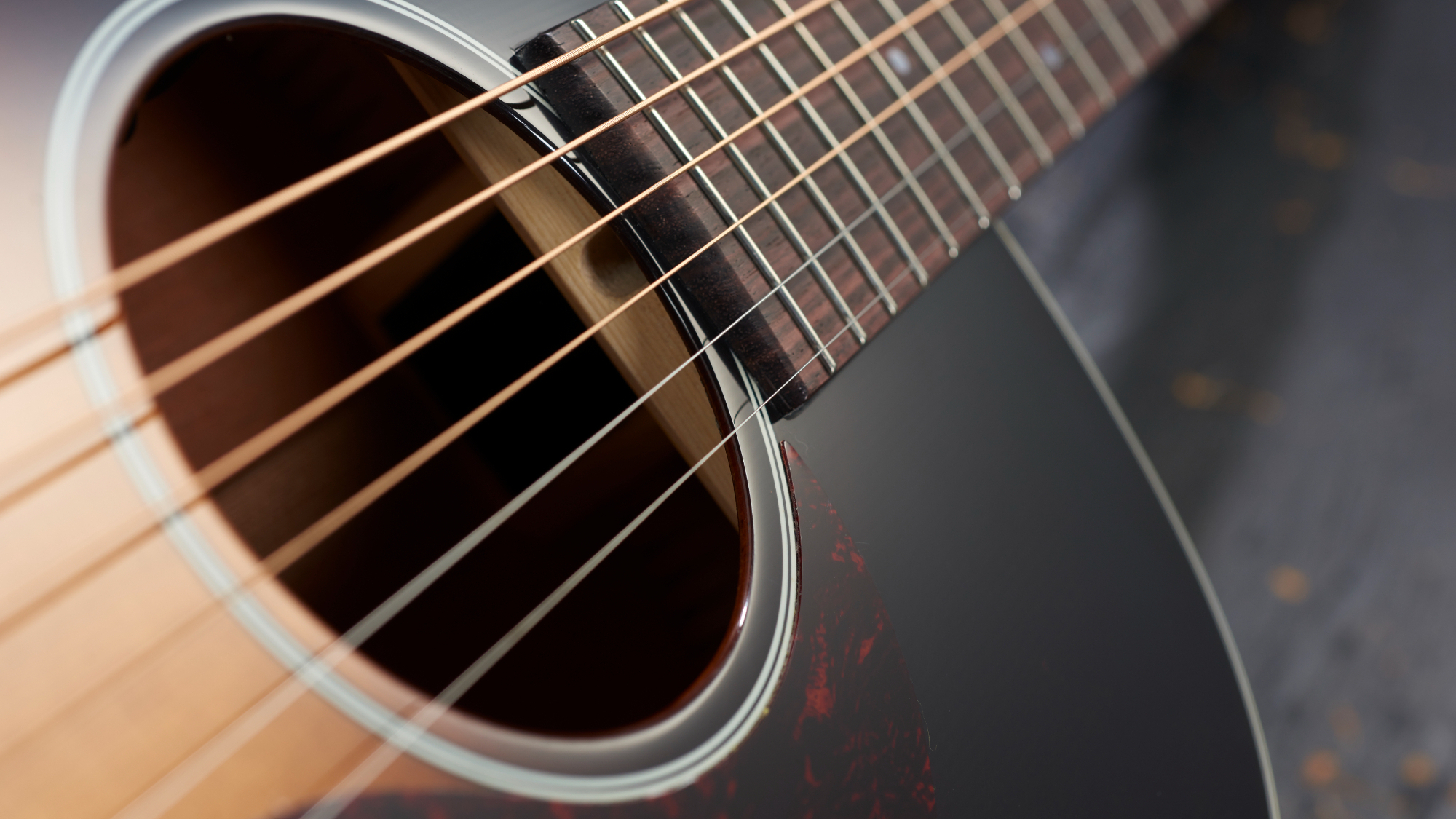
A key factor when looking at guitar strings is the gauge – that is, how thick they are. Gauge is measured in thousandths of an inch, which sounds tiny, but small differences in gauge can have a big impact on how they feel under the fingers.
Thicker gauge strings means there is physically more string there to push down on, so if you’re a beginner then generally you’d be looking at lighter or more medium gauges (although there really are no hard and fast rules). Some players claim that thicker strings lead to a better tone, and there is some evidence to back that up, but honestly, you’re going to get a better sound if you’re comfortable with what you’re playing.
Heavier gauge strings are also great if you tune down, as they will hold their tuning a little better. If you know that you have quite a heavy strumming hand, then heavier strings can help with this too as you’re going to be less likely to snap a string when playing.
A lighter gauge means you will have slightly thinner strings. This can make it a little easier for some players, and some fingerpickers with a softer touch will get a better dynamic response from lighter strings as they’re able to control them more.
With gauges, it really is a case of trying a few out and seeing what works for you. If you’re not sure, go for something in the middle – you can’t go far wrong with a set of regular or medium gauge acoustic strings, regardless of what style you play.
FAQs
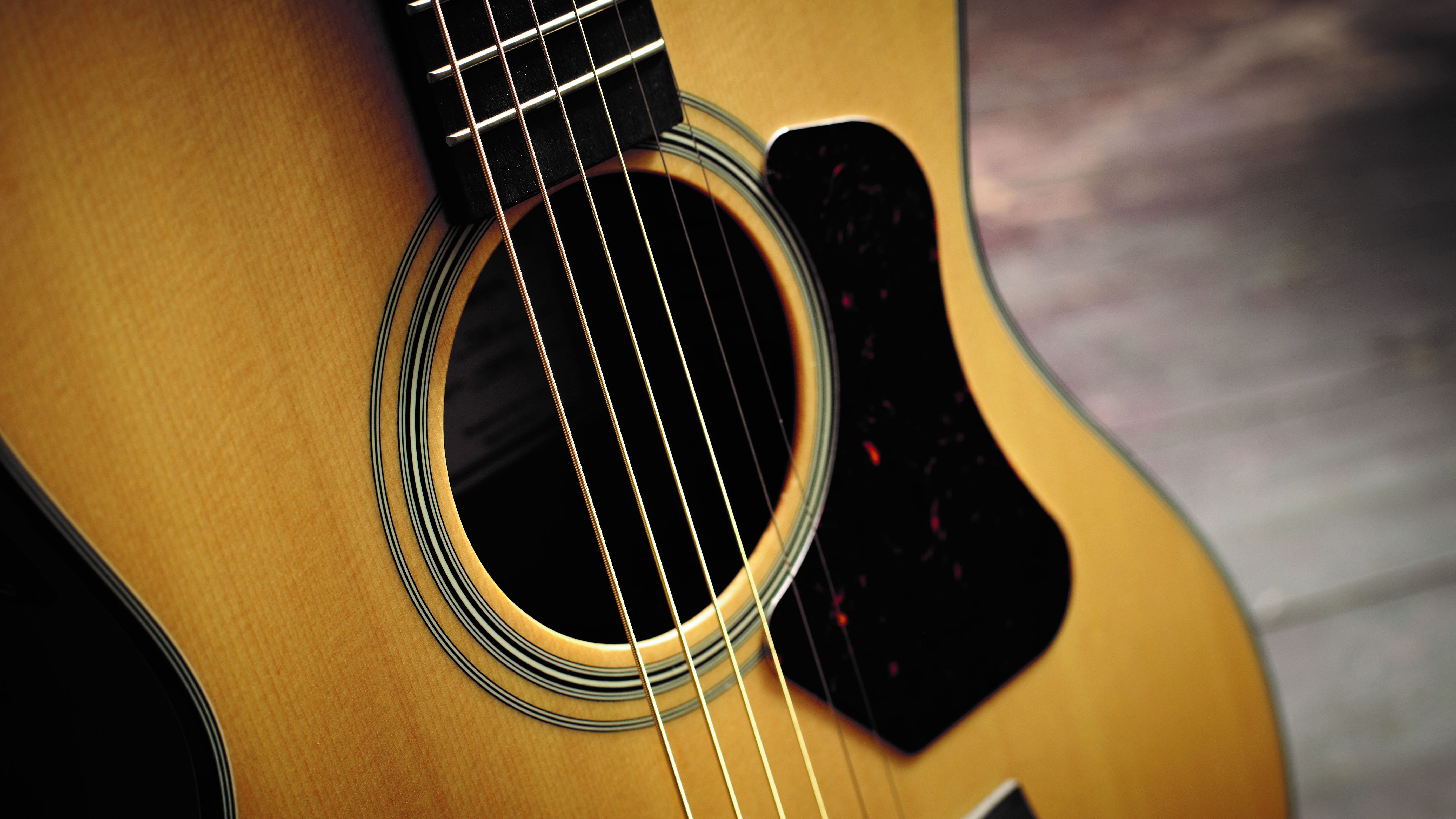
What are the best acoustic guitar strings you can buy today?
We have to mention the Ernie Ball Aluminium Bronze strings - they’re really good ‘all-rounder’ strings that work well for both fingerpicking and strumming. They project nicely, and they sound clear and balanced - definitely one of the best acoustic guitar strings on the market.
Elixir also make some incredible coated strings that help preserve that bright, freshly-restrung sound for up to 3-5 times longer than uncoated strings - they’re also what Taylor use on all of their steel-strung acoustics. Acoustic experts Martin also make a range of strings to suit quite literally any style of player.
What are acoustic guitar strings made of?
Acoustic guitar strings are essentially a metal core - usually stainless steel, with the thickest four strings wrapped in thinner metal windings. The exact materials can vary, but usually they’re made from bronze or copper. This differs from electric guitar strings which are usually wound with steel, or nickel so that they work better with the magnetic field created by the pickups.
It’s worth noting here that you don’t want to fit steel acoustic strings to a classical guitar either - doing so could end up causing damage to it.
What types of acoustic guitar string are there?
Acoustic guitar strings differ greatly when compared to electric guitar strings, and are manufactured differently. The main two types of acoustic string you’ll see are 80/20 bronze, and phosphor bronze. 80/20 bronze, or brass, is an alloy made from 80% copper and 20% zinc. Phosphor bronze is simply bronze, with phosphor added to the alloy. Whilst this all might sound a little boring, the two types of string do actually make quite a difference to the sound of your acoustic guitar.
Generally, 80/20 bronze strings tend to be brighter, with a more pronounced top end. Phosphor bronze on the other hand are often mellower, and slightly warmer sounding. Considering what sort of tone you’d like can be a good starting point when looking for the best acoustic guitar strings.
What are the benefits of coated acoustic guitar strings?
Coated strings have become more and more popular over the last decade or so. Some of the best acoustic guitar strings have a coating around the string that helps prevent dirt and sweat from getting into the grooves, making them sound like new strings for longer.
Coated strings are usually more expensive, but you won’t have to replace them as regularly, because they retain that fresh, bright sound for a longer period. Some coated strings have a slightly different feel, but if you’ve never tried them before then they’re worth investigating.
Which is better, Phosphor or 80/20 Bronze?
Usually you’ll find that the thickest four acoustic guitar strings consist of a stainless steel core, with windings wrapped around; the thinnest two are plain. Generally speaking the windings are made from either phosphor bronze or 80/20 bronze; both of which have particular tonal characteristics that make them less or more appealing to different players.
Phosphor bronze acoustic strings tend to be a little warmer and mellower, with a balanced response, whereas 80/20 bronze strings sound brighter, with some nice detail. They also tend to have a good bass response, with almost a slight natural mid scoop.
How often should I restring my acoustic guitar?
How regularly you need to change the strings on your acoustic guitar will also vary. If you’re playing it a lot, then once every 6-8 weeks or so will keep your instrument in good shape (you can wait a little longer if you’re using coated strings). If you’re playing it more, or playing it live, then maybe more regularly, and vice versa.
How we test acoustic guitar strings
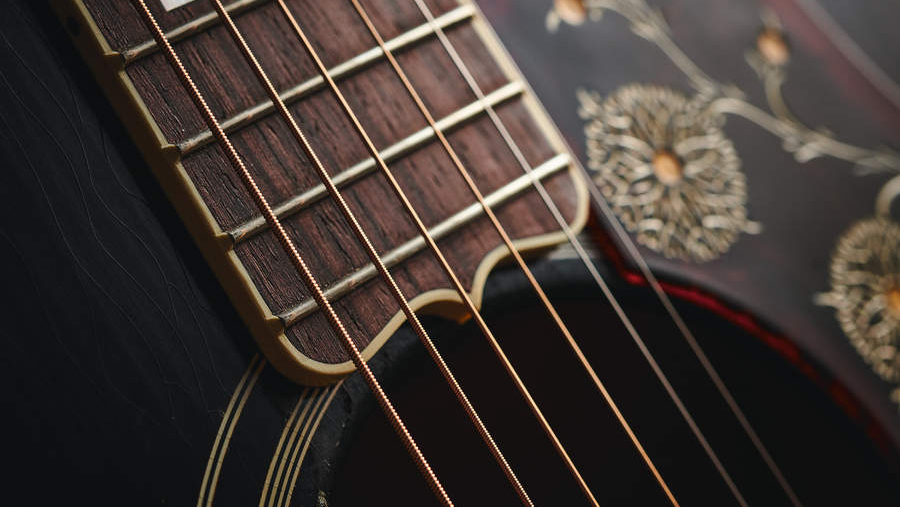
When it comes to testing acoustic guitar strings, it's essential that we put them through their paces to ensure they are fit for your beloved guitar. Now, that means putting them through a bunch of everyday tests.
We'll start by stringing the guitar with a fresh set of strings and observing how long they take to "bed-in". In this test, we are looking to see how long the strings take to become stable in their tuning. Of course, we are looking for this to be as quick as possible, with the best acoustic guitar strings taking minutes rather than hours.
Next, we need to test how the strings feel under our fingers. Naturally, we are looking for smooth strings, that allow us to glide effortlessly up and down the fretboard. When it comes to coated strings, we prefer not to notice the coating while we play - we'd rather just notice the anti-corrosion qualities. Speaking of corrosion, that brings us on to the longevity of the strings. To test this, we'll keep the strings on our guitar for as long as possible and take note of when they start to discolor, tarnish and lose their spark.
Now, obviously, how a set of strings sounds is very important. To test the tone of the strings, we make sure to play a wide variety of styles to see how the strings handle the different musical genres. We'll pay close attention to how the EQ of our guitar has changed with the addition of the new strings.
Read more about our rating system, how we choose the gear we feature, and exactly how we test each product.
Related buyer's guides
You can trust Guitar World
- Stock up on guitar gear essentials and accessories
- Best acoustic guitars under $500: including acoustic electric guitars
- Best acoustic guitars under $1,000: great tone for less
- Freshen up with the best bass strings
- Check out the best acoustic guitar pickups
- Just starting out? Check out the best beginner classical guitars
Get The Pick Newsletter
All the latest guitar news, interviews, lessons, reviews, deals and more, direct to your inbox!
Chris Corfield is a journalist with over 12 years of experience writing for some of the music world's biggest brands including Orange Amplification, MusicRadar, Guitar World, Total Guitar and Dawsons Music. Chris loves getting nerdy about everything from guitar gear and synths, to microphones and music production hardware.
- Matt McCrackenJunior Deals Writer
- Ross Holder
- Richard Blenkinsop
“A distinctive brightness that no other strings have been able to capture”: How Rotosound revolutionized the bass world with its Swing Bass 66 strings – and shaped the sound of rock music in the process
“It’s almost impossible for our machinery to make a bad string”: Jim D’Addario on the history, innovations and future of the world’s biggest string manufacturer – and its biggest-selling string sets

